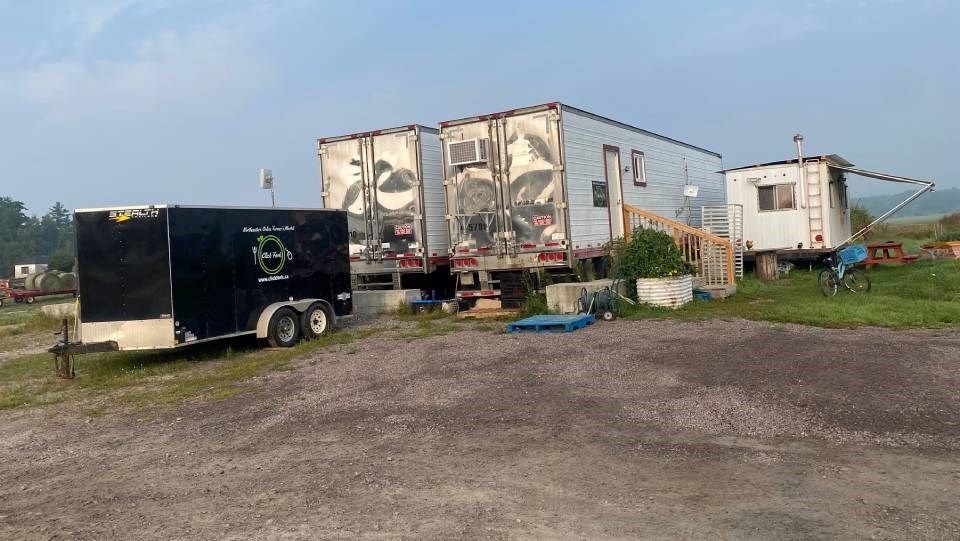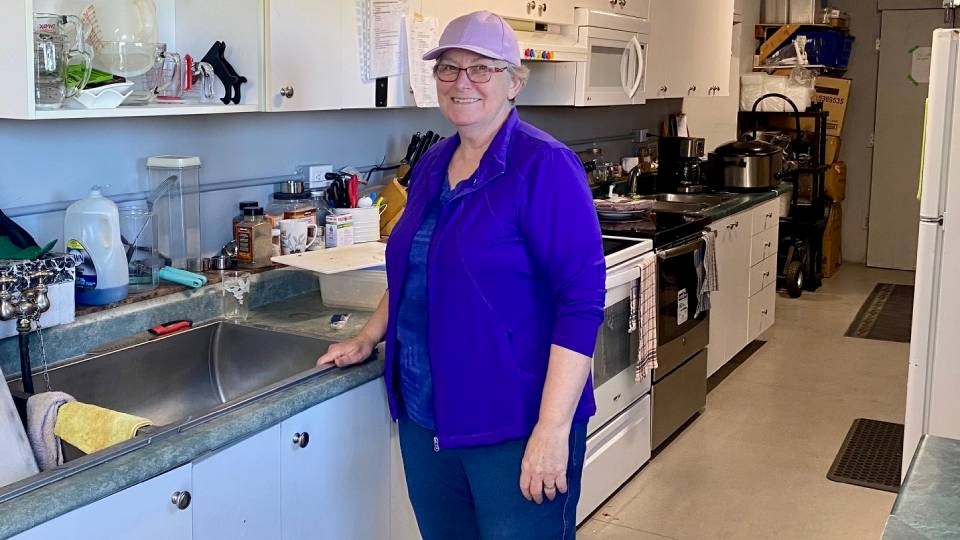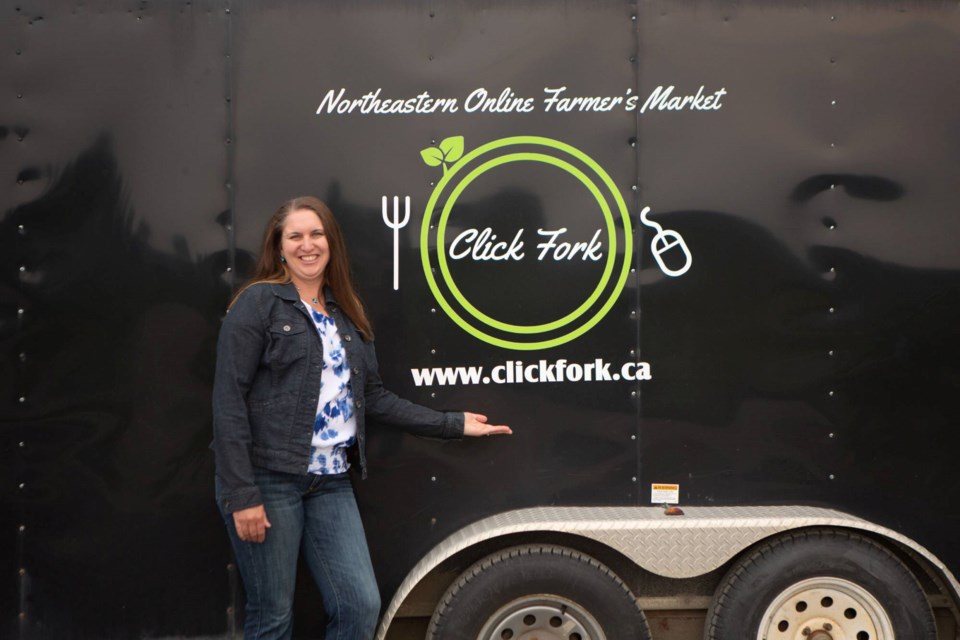The owners of a virtual farmers market have been so successful with the venture that they’ve had to add extra space on their property in Lavigne, east of Sudbury.
Click Fork – Northeastern Online Farmer’s Market was created six years ago following the closure of the food cooperative Eat Local Sudbury.
The owners of four farming operations — Dalew Farms, Field Good Farms, Kipling Ridge Farms and Three Forks Farms — wanted to continue marketing and distributing their products. After the group gathered for a brainstorming session they agreed to establish a virtual farmers market to sell and distribute each other’s products.
They based it on the website Chantal and Dave Lewington had already set up to sell products from their farming operation (Dalew Farms) in Lavigne. The name ‘Click Fork’ was suggested since online shopping requires the click of a computer mouse, while eating requires the use of a fork.
Within the first year, the virtual farmers market had become very successful, but some of the partners found the extra work burdensome on top of their farming chores.
Want more business news from the North? Sign up for our newsletter.
Chantal recalls that both she and her husband saw potential with Click Fork, so they decided to take over the business themselves.
“We wanted to make local food more accessible to our community,” she said.
At the time, Chantal had been working as an x-ray technician in West Nipissing. After the couple took over the business Chantal said she slowly reduced her work hours at the hospital so she could manage the online farmers market. A little over a year ago Click Fork became her full-time job. The business now includes five employees, including two kitchen staff and a warehouse manager.
The website sells 669 products from more than 40 farmers, producers and artisans from across northeastern Ontario.
Users can browse items based on categories or vendors. There are everyday staples like eggs, meat and produce. There are artisan wares like pottery and soap. There are even seeds, plants, prepared foods and preserves.
Customers can pay extra for home delivery, but most opt to pick-up at one of the free, community pickup locations in Sudbury, North Bay and West Nipissing. A list of times and locations is posted on the website.
“We look after the distribution and all the logistics to get the orders to the customers,” Chantal said.

When purchasing items from several different vendors, customers using Click Fork only need to make one payment. The vendor gets a portion of the sale, while Click Fork makes a small profit.
Chantal explained that the profit formula is “customized for different vendors.”
“For example, a vegetable farmer has a little bit more room for wholesale discount because their cost of production is lower compared with a livestock farmer.”
One of the benefits of agreeing to sell their products on the virtual farmers market is the vendor doesn’t have to worry about marketing or promoting their items.
“That’s a service that we provide to them,” Chantal said. “We promote their brands without charging them for it.”
This also means they’re included in the regular Click Fork newsletter. Vendors are also covered under Click Fork’s business insurance should there be an issue with any food product.
The one disadvantage for vendors choosing to sell on an online farmers market is there is no in-person interaction with consumers, which is a stark contrast to setting up at a traditional farmers market. Chantal said some of their vendors still participate in in-person farmers markets across the region.
Innovative, cost-effective solution
With the business growing rapidly since its inception in 2018, Chantal admits the need for more space became apparent several years in, particularly to store the inventory of frozen meat.
She said the solution they came up with was both innovative and cost-effective. They purchased two decommissioned, insulated transport trailers. One of the 52x8-foot trailers was converted into an inventory warehouse, while the other is used as a certified kitchen where prepared food items are made. The two trailers are joined by a tunnel and are situated on the Dalew Farms property. There is also an additional trailer used for office space.
“We’ve tried to keep our costs low so that we can sustain the business and make sure we remain viable,” Chantal said.

Much of the recent growth for the Click Fork business was as a result of the COVID-19 pandemic.
“Because more people were shopping online that’s when we saw our largest growth [in sales],” although Chantal admitted that the unpredictability was hard to deal with each time the provincial government enforced closure orders.
“We’re at a point now where we’re pretty stable in terms of sales and we’re trying to expand our market to find some new growth,” she said.
Click Fork is a for-profit business, but Chantal said there are other models to choose from. In fact, several other communities in Ontario have inquired about how to create their own version of an online farmers market.
Chantel said she wants to eventually help others set up similar businesses, but is still trying to make Click Fork into “a well-oiled machine” before she agrees to take on more.




